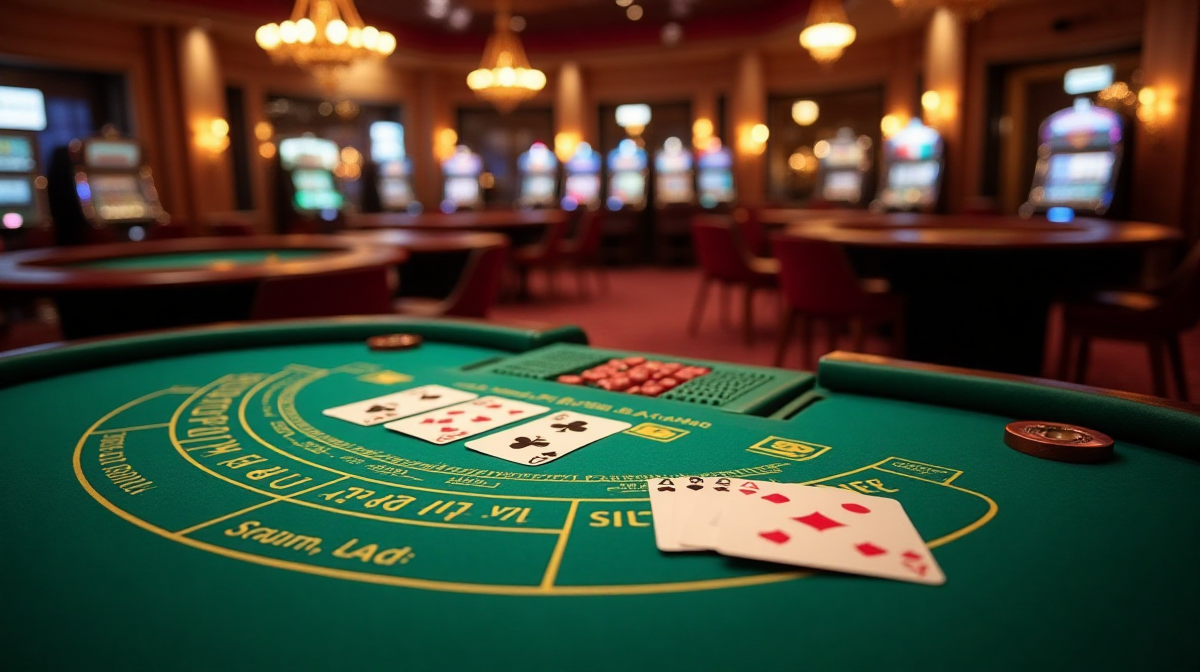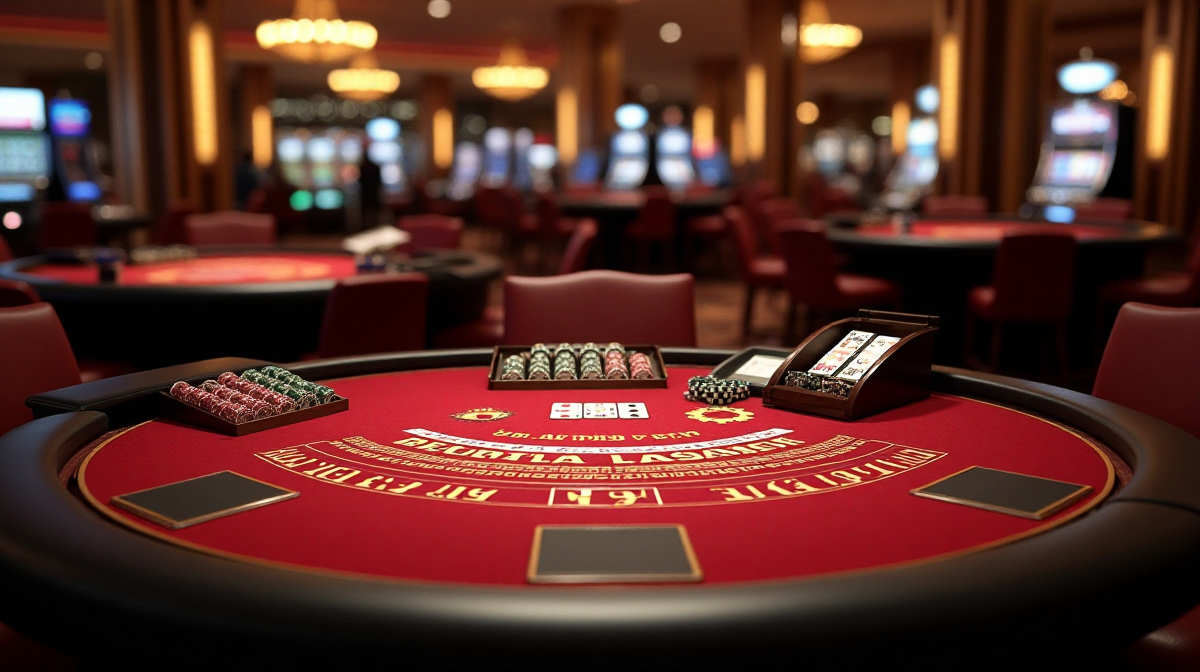What is Blackjack? Rules & Winning Chances
Introduction to Blackjack
What is Blackjack and its History?
Blackjack, also known as 21, is a casino game blending chance with skill. Its origins are debated, but many believe it evolved from a French card game called Vingt-et-Un (twenty-one) in the 18th century. The game made its way to the United States, particularly New Orleans, and gained popularity in the gambling halls. Today, it remains a staple of casinos worldwide and is increasingly accessible online. Many players are now using platforms like betfuse to engage with the game and explore various betting opportunities.
Why is Blackjack so Popular?
The enduring appeal of Blackjack lies in its relatively simple rules, combined with the potential for strategic play. Unlike pure games of chance, Blackjack allows players to influence their outcomes through informed decisions. This element of control, coupled with the excitement of potentially beating the dealer, makes it incredibly engaging. The availability of resources like betfuse prediction today football (as a tangential example of sports prediction interest overlapping with gambling) further demonstrates the desire to optimize outcomes in games of chance.
Blackjack Terminology – A Quick Glossary
Familiarizing yourself with common terms is crucial. “Hit” means to ask for another card. Stand indicates you’re satisfied with your current hand. “Bust” means exceeding 21, resulting in an automatic loss. The Dealer is the casino representative distributing cards. Understanding these basics is the first step to enjoying the game.
The Core Rules of Blackjack
Objective of the Game
The primary objective in Blackjack is to beat the dealer's hand without exceeding 21. You don’t necessarily need to get 21; you simply need a higher hand value than the dealer.
The Value of Cards
Cards are valued as follows: number cards (2-10) are worth their face value. Face cards (Jack, Queen, King) are each worth 10. An Ace can be worth either 1 or 11, depending on which value benefits the hand the most.
Dealer's Rules & Gameplay
The dealer follows a strict set of rules. Typically, the dealer must hit (take a card) if their hand totals 16 or less and must stand (stop taking cards) on 17 or more. These rules are standardized to ensure fairness.
Player’s Options: Hit, Stand, Double Down, Split, Surrender
Players have several options during their turn. You can Hit to receive another card, Stand to keep your current hand, Double Down to double your bet and receive one more card, Split if you have a pair to create two separate hands, and Surrender to forfeit your hand and receive half your bet back (not available in all casinos). Many are seeking assistance with strategy, leading to searches for resources like the betfuse prediction app to help improve their game.
Insurance & Side Bets
Insurance is offered when the dealer’s upcard is an Ace, allowing you to bet on the dealer having Blackjack. Side bets, such as Perfect Pairs, offer additional wagering options, but typically come with a higher house edge.
Blackjack Payouts & Winning Hands
A Blackjack (an Ace and a 10-value card) typically pays out 3:2. If you and the dealer have the same hand value, it's a Push, and your bet is returned.
Step-by-Step Gameplay Guide
Setting Up the Game
Blackjack is played on a semi-circular table with spaces for players and the dealer. Typically, multiple decks of cards (52 cards per deck) are used.
The Dealing Process
Each player receives two cards face up, and the dealer receives two cards, one face up and one face down.
Player Turns - Making Your Decisions
Starting with the player to the dealer’s left, each player makes their decisions (Hit, Stand, Double Down, Split, Surrender) based on their hand and the dealer's upcard.
Dealer's Turn – Revealing the Hidden Card
Once all players have completed their turns, the dealer reveals their hidden card and plays according to the house rules.
Resolving the Hand: Win, Lose, or Push
The dealer’s hand is compared to each player’s hand. If the player’s hand is higher than the dealer’s without exceeding 21, the player wins. If the player busts or the dealer’s hand is higher, the player loses. A tie results in a Push.
Blackjack Strategy: Improving Your Odds
Basic Strategy Charts – How to Use Them
Blackjack basic strategy charts are scientifically derived guides that dictate the optimal play for every possible hand combination against each dealer upcard. Using a chart drastically reduces the house edge.
Understanding When to Hit, Stand, Double Down, and Split
Basic strategy dictates when to hit, stand, double down, or split based on your hand and the dealer’s upcard. For example, you should generally hit if your hand is 12-16 against a dealer’s 7-Ace.
The Importance of Bankroll Management
Effective bankroll management is crucial for long-term success. Set a budget for your Blackjack sessions and stick to it, avoiding chasing losses.
Common Mistakes to Avoid
Avoid deviating from basic strategy, making emotional decisions, and betting more than you can afford to lose.
Blackjack Winning Chances & House Edge
Understanding the House Edge in Blackjack
The house edge represents the casino’s average profit on each bet. In Blackjack, the house edge is relatively low, especially when using basic strategy.
Factors Affecting Your Winning Chances
The number of decks used and specific rule variations (e.g., dealer hits on soft 17) can affect your winning chances. Fewer decks generally favor the player.
House Edge with Basic Strategy vs. Without
Without basic strategy, the house edge can be as high as 2-5%. With basic strategy, it can be reduced to less than 1%.
Can You Count Cards?
Card counting is a technique used to track the ratio of high to low cards remaining in the deck, providing an advantage to the player. While not illegal, casinos often discourage card counters and may ask them to leave.
Blackjack Variations
European Blackjack vs. American Blackjack
European Blackjack typically has different rules than American Blackjack. For example, in European Blackjack, the dealer usually only receives one card face up, and players often cannot double down after splitting.
Spanish 21
Spanish 21 uses a 48-card deck (removing the 10s) and offers bonus payouts for certain hands.
Pontoon
Pontoon is a British variation with unique terminology and rules.
Other Popular Variations
Other variations include Blackjack Switch and Fortune Pai Gow Blackjack.

Playing Blackjack Online & In Casinos
Online Blackjack vs. Live Casino Blackjack
Online Blackjack offers convenience and lower stakes, while Live Casino Blackjack provides a more immersive experience with a real dealer. Platforms like betfuse are increasingly offering live dealer options.
Tips for Finding Reputable Online Casinos
Look for casinos licensed by reputable regulatory bodies, offering secure payment methods, and with a proven track record of fair play.
Etiquette at the Blackjack Table
Be mindful of other players, avoid giving unsolicited advice, and tip the dealer if you're winning.

Resources & Further Learning
Recommended Websites & Books
Several websites and books offer comprehensive Blackjack strategy guides and information.
Blackjack Calculators & Tools
Blackjack calculators and tools can assist with basic strategy, but relying on them too heavily can hinder your understanding of the game.
Glossary of Advanced Blackjack Terms
For dedicated players, learning advanced terms like “soft hand,” “hard hand,” and “deviation” can further enhance their gameplay. Understanding what is blackjack beyond the basics is key to mastering the game.

